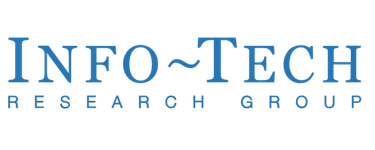This article first appeared in the Financial Times. Reproduced with permission. © FT Limited 2025.
With 64 per cent of CEOs reportedly planning AI-related acquisitions this year, the winners will be those who embed governance into their deal due diligence to unlock hidden value and weed out risks. With billions at stake, ignoring AI governance isn’t just an oversight; it’s a breach of fiduciary duty.
Hewlett Packard’s $14.3bn bid for Juniper Networks reveals a strategic play in the plumbing that powers artificial intelligence.
Behind the headlines was a crucial enabler: rigorous due diligence on Juniper’s AI governance. HP’s team dissected Juniper’s neural networks, stress-tested data pipelines and simulated compliance with the EU AI Act.
Contrast this with rival IBM. The tech giant acquired multiple start-ups over the years to realise the bold vision of its Watson Health division: to revolutionise healthcare using AI. Instead, this led to a $4bn loss: a cautionary tale of unchecked AI governance.
The lesson is clear: AI governance is no longer just about trust or ticking boxes, it’s a core driver of valuation.
The new calculus of AI-driven deals
As the appetite for deals such as HP’s bid for Juniper Networks surges, the stakes are higher than ever. While 82 per cent of companies deploy or explore AI, fewer than 30 per cent systematically assess AI governance in due diligence. This issue is more than technical: it’s also financial.
Bain & Company and Dentons warn that unchecked AI liabilities can jeopardise billions in deal value, from copyright risks to algorithmic bias lawsuits and regulatory penalties under various regulations, such as the EU AI Act.
Globally, more than 69 countries have proposed or established more than 1,000 AI-related policy initiatives, legal frameworks and guidelines to address public concerns about responsible AI, governance and safety. The US has taken a piecemeal approach, with 45 states introducing bills and 31 enacting new laws or resolutions to date.
Two contrasting cases illustrate the impact. Google’s $500mn acquisition of DeepMind in 2014 solidified its AI leadership and also set an early governance benchmark. DeepMind’s co-founders made an AI Ethics Board a condition of the deal, ensuring oversight and transparency. This marked the first time governance was embedded into an acquisition agreement, reshaping M&A by prioritising AI governance.
Meanwhile, Uber’s $680mn acquisition of Otto in 2016 floundered due to legal clashes with Google’s self-driving project, Waymo, and regulatory setbacks, rendering its vision of self-driving trucks obsolete.
The value of AI isn’t vested through deal hype: it’s realised via governance.
Three compliance tips
Companies powered by AI technology, like Juniper Networks, defy traditional due diligence. Unlike static software, they evolve, creating opportunities for immense value but also shifting liabilities.
Beware the bias time bomb
After acquiring Ring in 2018, Amazon faced backlash when the AI-driven facial recognition software misidentified people of colour, triggering false alerts. Initially unnoticed, this algorithmic bias escalated under public scrutiny. Amazon was forced to revise its policies and impose a one-year moratorium on AWS AI sales to law enforcement. It also faced scrutiny from the Securities and Exchange Commission and settled a lawsuit with the Federal Trade Commission for $5.8mn. AI-related incidents, including bias and privacy breaches, rose 32.3 per cent in 2023.
Steer clear of regulatory quicksand
AI regulation is evolving rapidly. The EU AI Act is now in force, and various countries around the world are implementing AI regulations of their own. The landscape is less clear in the US, where regulations vary by state. Nvidia recently faced an antitrust probe in Europe over its Run:ai acquisition, initially deemed minor. Dealmakers must expect more regulatory scrutiny.
Sidestep data integrity landmines
The collapse of IBM’s Watson Health division highlighted multiple governance failures, from acquiring AI startups without auditing training data to issuing unsafe treatment recommendations and ignoring global treatment protocols.
The AI governance premium
Forward-thinking firms see governance as a value accelerator, not a hindrance. Cisco has embedded AI governance into M&A workflows to accelerate post-takeover integration, reduce risks and maximise value. When the tech giant acquired data analyser Splunk, it embraced frameworks and reviews, conducting algorithmic audits, compliance checks and verifications of data integrity and security. The result was better enterprise security, faster post-merger integration and proactive risk mitigation.
The question isn’t just “What value can this AI company add?” but “What could it destroy?” Answer wisely, the governance premium awaits.
How to do due diligence on AI M&A
Large language models and algorithmic audits. Stress-test models for bias, fairness and drift. Tools and frameworks from Stanford or MIT are freely available.
Regulatory compliance mapping. Check systems comply with global regulations (EU AI Act, GDPR, NIST) to reduce the possibility of fines. Stay updated on new rules with The Verge AI & Policy, Reuters AI & Technology Law or The Holistic AI Tracker.
Security, data privacy & provenance checks. Make sure AI classifies and documents personal and confidential data use, and verify ownership of the data used to train models. Stability AI faces a $1.7bn lawsuit for unauthorised use of Getty Images during training of its AI application. A few options include Riscosity, Astera or Collibra.
Explainability and transparency reviews. Companies with robust transparency frameworks and documented decision-making processes will command higher valuations, fewer legal disputes and stronger trust with stakeholders. Look for a native AI SaaS or AI agent-based governance solution incorporated into the technology stack early in the development process. Check for regular monitoring and alerting.
Source - The Financial Times - Baking Risk & Regulation
Stay ahead of evolving financial risks and regulations—Start with a free 3-week trial of Banking Risk and Regulation from FT Specialist - Click here




